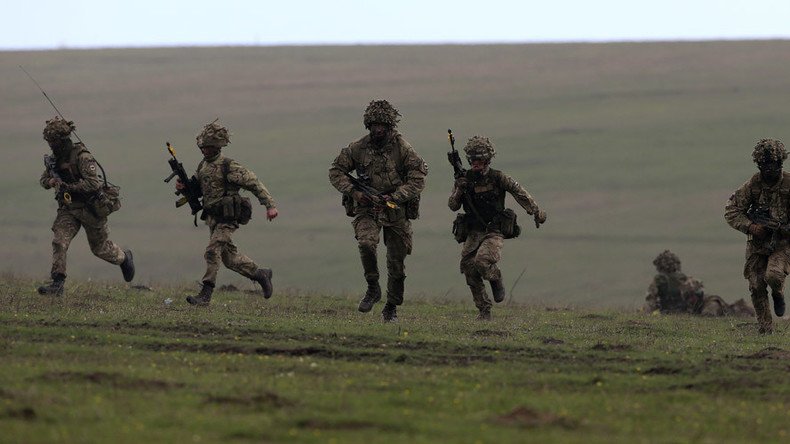Afghan war veteran dies during training exercise on hottest day of the year

A soldier who was reportedly a veteran of the Afghan war died on a training exercise during a heatwave on Tuesday in the Brecon area of South Wales, the UK Ministry of Defence (MoD) has confirmed.
The soldier, from the Rifles Regiment, has been named locally as Joshua Hoole, from Dumfries, Scotland.
Reports indicate he served two tours in Afghanistan and was due to marry his long-term girlfriend, Rachael McKie, later this year.
His stepmother, Carol Jeffreys, wrote a message of condolence on Facebook: "Rest easy soldier. My beautiful stepson. Can’t believe it.Will always love you. So very proud of you. Thoughts with your family and fiancee. RIP Josh."
Hoole’s grandfather, 79, who is also a former soldier, told the Daily Record: “The family are absolutely shattered by this. Josh was the greatest grandson you could ask for. He was the perfect grandson. He was just here last week. He went out for a 10-mile run. We just can’t get our head around it.
“He was a dedicated soldier and so fit. He was an infantry instructor at Catterick [barracks in North Yorkshire] and just loved the army. The MoD have been keeping their cards close to their chest but we think its dehydration or something that has caused this.”
Civilian paramedics were called to the training facility in Brecon early on Tuesday morning, before temperatures reached above 30C (86F).
The MoD has yet to comment on cause of death of the soldier, who served in the Rifles regiment.
The soldier, from Infantry Training Centre Catterick, died while conducting pre-course training for the Platoon Sergeants’ Battle Course.
A spokesman for the MoD said: "We can confirm that a soldier from ITC Catterick died on 19 July while conducting pre-course training for the Platoon Sergeants' Battle Course in Brecon."
Error upon error, heard an inquest into how 3 SAS recruits died from blistering heat http://t.co/CraDFABGNPpic.twitter.com/gjNU0UNzco
— RT UK (@RTUKnews) July 14, 2015
Hiker Phil Jolly, 53, was walking in the same hills in Wales on Tuesday when he spotted soldiers on training exercises.
“Ordinary hikers are struggling to walk up with light rucksacks. I don't know how these guys can do it it - they're running with a huge weight on their backs,” he told the Daily Mail.
In 2013, three Special Forces soldiers died while on training in the Brecon Beacons during a blistering heat wave.
Lance Corporal Edward Maher died from hyperthermia on the Brecon Beacons mountains in Wales on July 13, 2013, while Lance Corporal Craig Roberts and Corporal James Dunsby died later in hospital.
Coroner Louise Hunt, who presided over an inquest into the deaths of the soldiers, found the men died from neglect.
Shot, crushed, drowned: Military training deaths revealed by MoD http://t.co/JYG9aiZiOQpic.twitter.com/zYvPnK0dLL
— RT UK (@RTUKnews) July 23, 2015
Hyperthermia is caused by failed thermoregulation that occurs when a person produces or absorbs more heat than they dissipate. In serious circumstances it can prove fatal.
Coroner Louise Hunt, who presided over an inquest into the deaths of the soldiers, found the men died from military neglect.
“Those running this march were fundamentally under-briefed. They did not fully understand the risk of heat illness, and the emergency plan was inadequate,” she said.
"I consider the briefing to those running the march to be inadequate as it failed to include weather conditions, the risk of heat injury and the reporting of reasons for medical withdrawals should they occur.
"It also failed to include plans to evacuate any casualties."
Hunt found that there was insufficient water, that the most accessible hospitals were not identified in a risk assessment and that GPS trackers used by the soldiers were not fit for purpose.
"No measures were put in place in this march to mitigate that risk. This is concerning because it appears lessons have not been learned,” she said.












